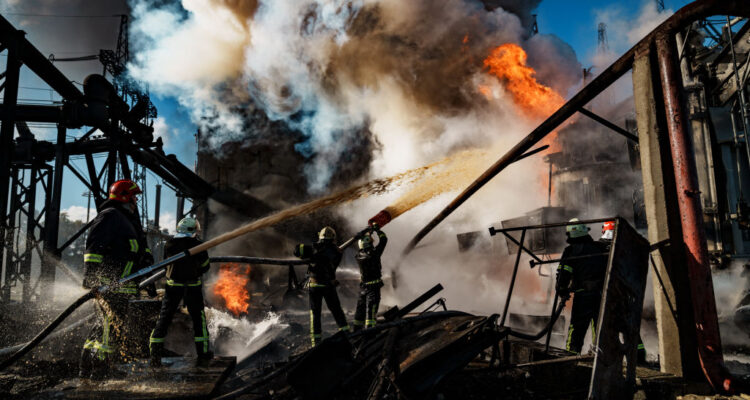In his address to the UK House of Commons last month, Ukraine’s President Volodymyr Zelensky declared: ‘We built a coalition of air defence, which allows us to save the lives of our children, of our people, of our civilians, our women, our elderly, and our cities from atrocious Russian occupation and missile terror.’
As Russia has stepped up its missile and drone attacks on Ukrainian population centres, much attention has focused on the role of missile-defence systems. Anti-missile shields are designed to undermine an adversary’s confidence by heightening uncertainty and degrading its missile capabilities while strengthening the morale of those attacked. Their effectiveness is studied closely by military establishments including in Israel, which has contended with regular rocket and missile attacks for decades.
In the early months of Russia’s invasion, Ukraine’s population and infrastructure were exposed and vulnerable to missile attacks. Between February and May, Moscow fired more than 2,000 cruise and ballistic missiles in an attempt to destroy Ukrainian air defences. During March and April, Ukrainian defenders intercepted 20–30% of them.
Russia began targeting sites such as government buildings and telecommunications infrastructure in an attempt to damage resistance and morale. By June, targets included critical energy facilities and railway lines. Ukrainian air defences were reorganised and redeployed to protect cities and important infrastructure, and interception rates reaches 50–60%. Ukraine’s S-300 systems have been effective against Russian cruise missiles, particularly when they received early warning of launches.
Read the article by Azriel Bermant and Matthew Tentler in The Strategist.

